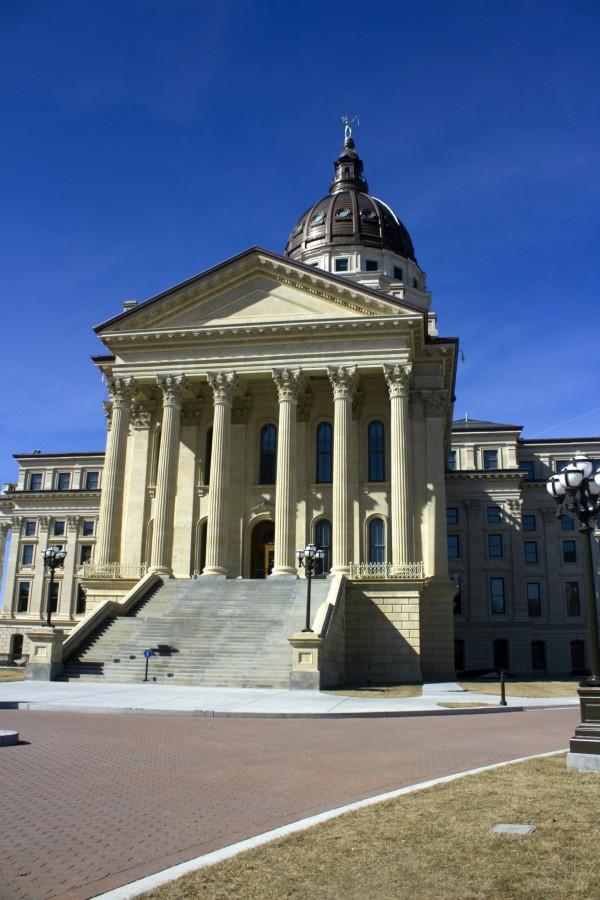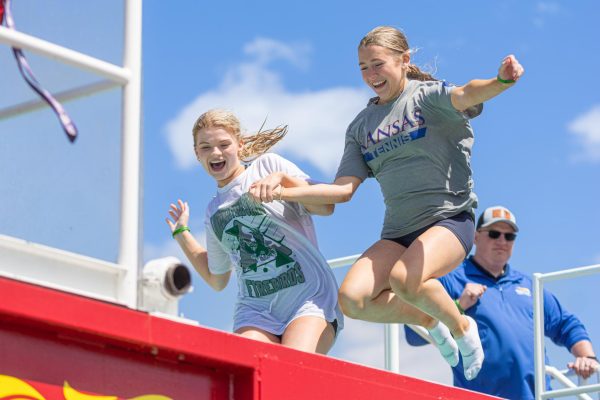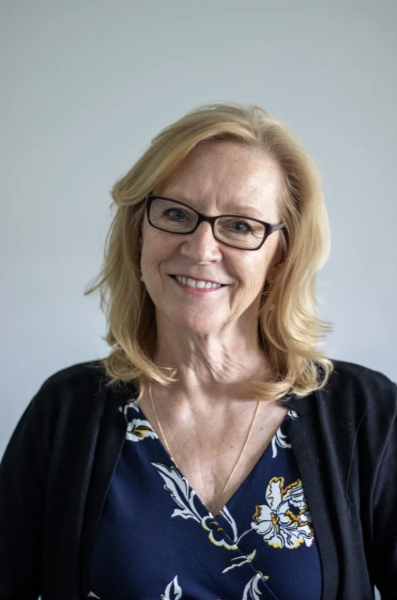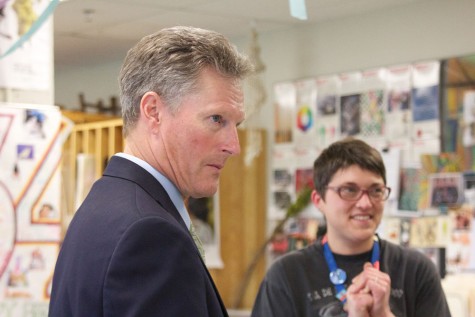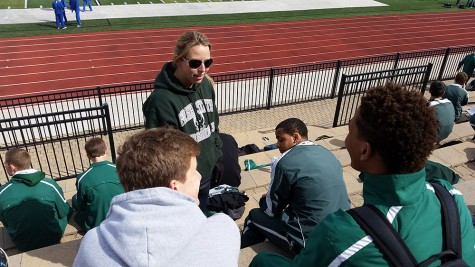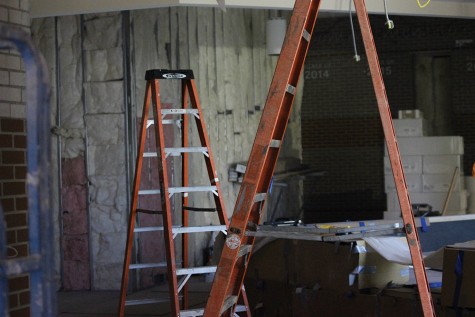Governor Sam Brownback introduces plan to cut school funding
When Kansas Governor Sam Brownback announced his plan to cut the state’s education budget, criticisms arose from all across the country. ‘The track record that they have had showed that the district weathered pretty good the last round of cuts. To have an education system wholesale turned upside down, I don’t think that would happen.” Principal Ed West said.
A MoveOn Petition to “Recall Sam Brownback” with upwards of 30,000 signatures from all over the country, a New York Times article questioning the state’s financial plan and plenty of other national criticism have resulted from recently announced education budget cuts.
Many Kansans are concerned with the reductions authorized by Gov. Sam Brownback on Feb. 5 for the current school year, but Principal Ed West is confident that the school and the district will weather this storm. It is the cuts to education that will take place next year that has him more concerned.
“They are confident they can absorb that in other areas,” West said. “Potentially next year, though, you could be looking at anywhere from a $1.4 million cut or up, which is very significant.”
West believes this year’s cuts will be no worse than past cuts in terms of their impact on students, and Superintendent Rick Doll corroborated West’s sentiments in his statement to district staff on Feb. 10.
“This will be a challenging process, but let’s not overreact,” Doll said. “The district will get through this as it has before, and we will get through it in such a way that minimizes the impact to students and employees as best we can.”
Though both West and Doll are confident the cuts will be manageable, Doll expressed concerns about the unique challenge of dealing with budget cuts mid-year, which reduces the amount of time the district has to prepare and cushion the blow.
“This means that Lawrence Public Schools will lose $600,000 from this year’s budget,” Doll said. “Making mid-year cuts is extremely difficult because our budget has already been established and contract and program costs are ongoing. It appears very likely that the governor’s cuts will not be restored, so we must identify mid-year cuts, as we make plans to manage doing more with less next year. The only real question now is: how much less will we have to work with next year?”
David Reber, Anatomy teacher and active Kansas National Education Association (KNEA) member, paints a less sunny picture. Reber believes that the cuts are part of a bigger plan to fundamentally change the school system in Kansas.
“First, it is important to know that the budget ‘crisis’ was manufactured deliberately,” Reber said.
Specifically, Reber points to the school finance formula, the legislation which allows money to flow from the government to the schools and which the state legislature wants to abandon. The governor has proposed using grant-based funding as an alternative, but Reber has speculation on that as well.
“The way I see it, eliminating the finance formula and forcing 280 districts to compete for limited funds is a poorly-disguised way to give all districts less and to threaten [and] bully school districts into going along with this administration’s agenda,” Reber said. “Teach evolution? No money for you. Teach sex? The list of potential suppressions [and] exhortations is endless.”
He also believes the state could face a constitutional crisis with the elimination of the finance formula because Article 2, Section 24 of the Kansas Constitution requires that all funding must be authorized with specific legislation.
“If at that point the court orders the legislature to fund schools as per Article 6, they would in effect be ordering them to violate Article 2,” Reber said. “The time it will take for such a mess to work its way through the court system will be more than enough time to starve public schools into failure and then use that failure to justify mass privatization. And that is what this is really all about.”
While Reber and other critics decry the cuts as an actively malicious attempt to undermine education, Brownback maintains his goal is to support education in a manner that is more specific to the needs of Kansans. A statement from the governor’s website begins to explain his position:
Every Kansas child should have access to a quality education that not only meets their individual needs but also embraces their specific talents and interests. The key to providing an education that is relevant to every child is collaboration, innovation, and local control. Local school board members, local administrators, local teachers, and local parents know what’s best for the children in their community.
The governor claims more local funding and local control could be beneficial and relevant to the specific issues faced by Kansas schools.
Regardless of the banter about government motives and predicted impacts, Mark Desetti, director of legislative and political advocacy at KNEA, concludes that major changes to the funding formula may not happen in the end because of infighting in the Republican party.
“You’ll have extreme right-wing Republicans, like the Tea Party, and then on other end of the Republican scale you have traditional Republicans or moderates,” Desetti said. “These are the Republicans that are fiscally moderate, but they believe the government does good things and schools are important, more in the mold of a Dwight Eisenhower or a Nancy Kassebaum than a Sam Brownback.”
If conflicts do present considerable obstacles to some of the more controversial aspects of the education changes, then these issues may be solved with less tumult than Reber predicts and with less of an overhaul than Brownback would like, and things would happen as they usually do in Kansas, very slowly.
Your donation will support the student journalists of Lawrence Free State High School. Your contribution will allow us to purchase equipment and cover our annual website hosting costs.



